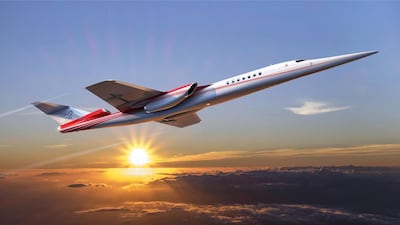Aircraft manufacturer Boeing agreed a partnership with fellow US plane maker Aerion, which is developing next-generation supersonic aircraft capable of flying at up to 1,000 miles per hour, it said on Wednesday.
Under the deal, Boeing will provide engineering, manufacturing, flight-test resources and other support to bring Aerion’s AS2 supersonic business jet to market. The jet is already under development.
Boeing said it has made a “significant investment” in Aerion as part of the deal, but did not disclose the size or terms. The company is investing in a range of emerging technologies and concepts though its research and innovation units.
“Boeing is leading a mobility transformation that will safely and efficiently connect the world faster than ever before,” said Steve Nordlund, vice-president and general manager of Boeing NeXT, the company’s future planning arm. “This is a strategic and disciplined investment in further maturing supersonic technology.”
As part of its work, Boeing is also developing hybrid-electric aircraft technology for journeys of 500 miles or less for planes with capacity for 5 to 9 passengers, while its venture capital arm, BoeingHorizonX, has made minority investments in aerospace and manufacturing start-ups include Zunum Aero, which aims to deliver its first electric aircraft in the early 2020s.
Aerion was founded in 2003 to develop new, more efficient aerodynamic technologies for supersonic aircraft. It unveiled the first plans for its AS2, 12-passenger business jet in 2014 and later designs, including a GE turbo-engine, last year.
The AS2 is designed to fly at speeds up to Mach 1.4 or approximately 1,000 miles per hour – 70 per cent faster than today’s business jets and shaving approximately three hours off the duration of a transatlantic flight. The aircraft’s first flight is scheduled for 2023.
“The AS2 is the launch point for the future of regulatory-compliant and efficient supersonic flight,” said Tom Vice, chairman, president and chief executive of Aerion.
